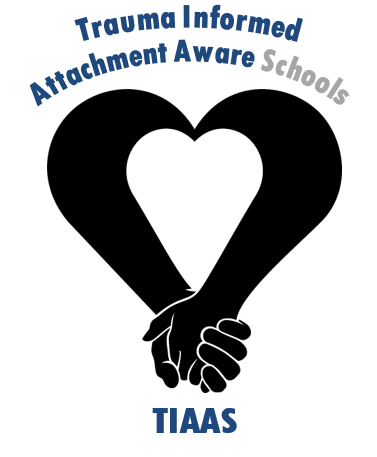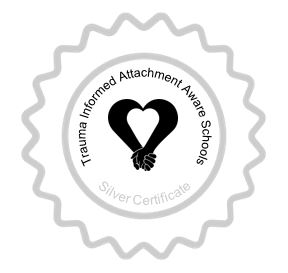TIAAS
Wellbeing at Camp Hill:
Understanding Trauma and Attachment
At Camp Hill we value the importance of wellbeing for our students, staff and parents/carers. We understand that good mental health and a supportive, safe environment are key factors to building resilience and enabling some of our most vulnerable children and young people to thrive.
We have made a commitment to better understanding trauma and attachment theory as we began our journey in becoming a Trauma Informed Attachment Aware (TIAAS) school.

What is a TIAAS school?
A Trauma Informed Attachment Aware School (TIAAS) allows children and young people to recover from trauma; resilience to self-regulate their emotions is promoted through a whole-school approach. The programme, delivered through the Birmingham Educational Psychology Services (EPS) equips all staff with the knowledge and skills to understand trauma and attachment theory, as well as providing strategies to support children and young people.
Where are we on this journey?
All staff, including support staff, have been trained on trauma and attachment theory through the EPS. This comprehensive training included the impact of trauma, Adverse Childhood Experiences (ACEs), understanding what attachment awareness is, how the brain develops for children and young people, and developing resilience. Alongside this, there has been training in emotion coaching – an evidence-based, universal approach towards responding to children and young people’s emotions, enabling them to develop their own self-regulation skills, in time.
We are incredibly proud to have been accredited the TIAAS (Trauma Informed Attachment Aware School) Silver award (in November 2024) demonstrating our commitment to our students; relationships are at the heart of our practice.
What is Emotion Coaching?
Emotion coaching is an evidence-based whole school approach towards responding to a child or young person’s emotions. It teaches them about the world of emotion, giving them strategies to deal with ups and downs. Emotion coaching accepts negative emotions as normal, as well as negative behaviours as opportunities for teaching. Alongside this, it builds trusted and respectful relationships. Emotion coaching works with the physiology and anatomy of the brain to support the development of emotional regulation.
What might be seen around school/in lessons?
Students, particularly our Wellbeing Prefects and Wellbeing School Council representatives will begin to become more involved in piloting some of our next steps, before all students see guidance in understanding their emotions in all classrooms as well as learning about brain development through their PSHE lessons. Students will begin to hear the language of emotion coaching from staff, which involves 4 key stages:
- Notice and empathise
- Label and validate
- Set expectations (if needed)
- Problem solve with the young person
What else is involved in the TIAAS programme?
- whole staff training and access to further training or workshops for groups of staff with different roles within school and parents/carers;
- ongoing access to network meetings and CPD opportunities with other schools doing TIAAS, to support with implementation of these approaches over time;
- Educational Psychologists supporting our school to embed these approaches through providing consultation and action planning with our Senior Leadership Team;
- becoming a part of the Attachment Research Community (ARC) and using the ARC Audit tool to measure our school’s progress over time; and
- opportunity to work towards Bronze, Silver and Gold TIAAS certification to recognise and celebrate our school’s progress on this journey.
What can I do as a parent/carer to support my child?
You can try to use Emotion Coaching strategies with your child at home; please refer to this advice (Emotion Coaching UK), promoted by the EPS, to support parents/carers. We also intend to offer some closer work with parents/carers involving TIAAS strategies in the summer term. Please look out for future emails with details about how to get involved.

